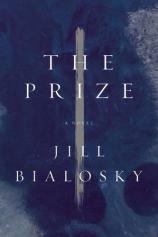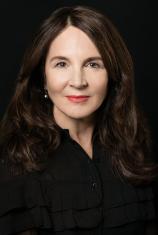Reading Group Guide
Discussion Questions
The Prize

1. The novel is constructed through the guise of five marriages: gallerist Edward and his wife Holly; rising artist Agnes and artist, Nate; the artist Julia and her husband; Edward’s parents’ marriage; and the marriage that binds them all --- that of commerce and art. How does Bialosky construct these unions and how do they play a role in the larger issues of THE PRIZE?
2. How do these various marriages differ? What do you think the author is attempting to say about marriage?
3. The most successful artists in the novel --- Nate and Agnes --- create art influenced by the attacks on 9/11. Why did the author use this as their guiding force? Do you think it shows how artists can interpret reality or transform real world events? Do you think their work as described shows New York artists seeking to move past these events? Julia’s art too comes from a place of loss and longing. How necessary is suffering to the creation of art?
4. Edward’s father was a huge influence on him, on his deeming art and beauty necessary to life. How does this idealism manifest in the novel? Can art help us in our daily lives?
5. Throughout the novel, Agnes ostensibly tries to shake Nate’s success, which she fears will overshadow her own. Does Nate act similarly toward Agnes’s success? What role does competition play in their lives and in the novel itself? Is it a vehicle for producing great art, or a hindrance?
6. On page 165, Edward’s mother says, “They don’t give out prizes for the woman who organizes the home, makes the bed, cleans out the closets.” Between this quote and Edward’s and Holly’s conversation following the Christmas party on page 196, in what ways can we read THE PRIZE as being Holly’s story?
7. At the banquet in New York, the tarot reader claims Julia is The Fool, which has two sides: the spark that sets everything in motion, and also unmolded potential. In what ways does Julia represent unmolded potential? In what ways does Edward?
8. What is the significance of Edward gaining Julia but losing Agnes on the same night?
9. What role does the recurring motif of nature outside of Edward’s house play? In particular, the deer that Edward and Holly see at the beginning of the book returns as Edward’s personal relationships are falling apart; why is this? What does the deer foreshadow?
10. Throughout the book, Edward appears tortured or conflicted by memories of his father. What changes for him in the final passage? Does this signal a reconciliation with that memory?
11. Aside from the Tanning Prize at the end of the novel, what is the titular “prize” and who receives it?
12. The novel hints at a possible love affair between Professor Kincaid and Edward’s father. Are these intimations to be taken at face value, or are they merely the result of Edward’s frustrated projections on his surroundings?
13. Infidelity plays a crucial role in the life of nearly every character in the novel. What does the novel say about the possibility of a stable marriage and the nature of love?
14. We meet Edward at a crossroads, both personally and professionally. His conflicts in his domestic life sometimes mirror those he faces professionally in the art world. How does he seek to resolve the conflicts in his life? Does he succeed?
The Prize
- Publication Date: August 9, 2016
- Genres: Fiction
- Paperback: 325 pages
- Publisher: Counterpoint
- ISBN-10: 1619027968
- ISBN-13: 9781619027961








